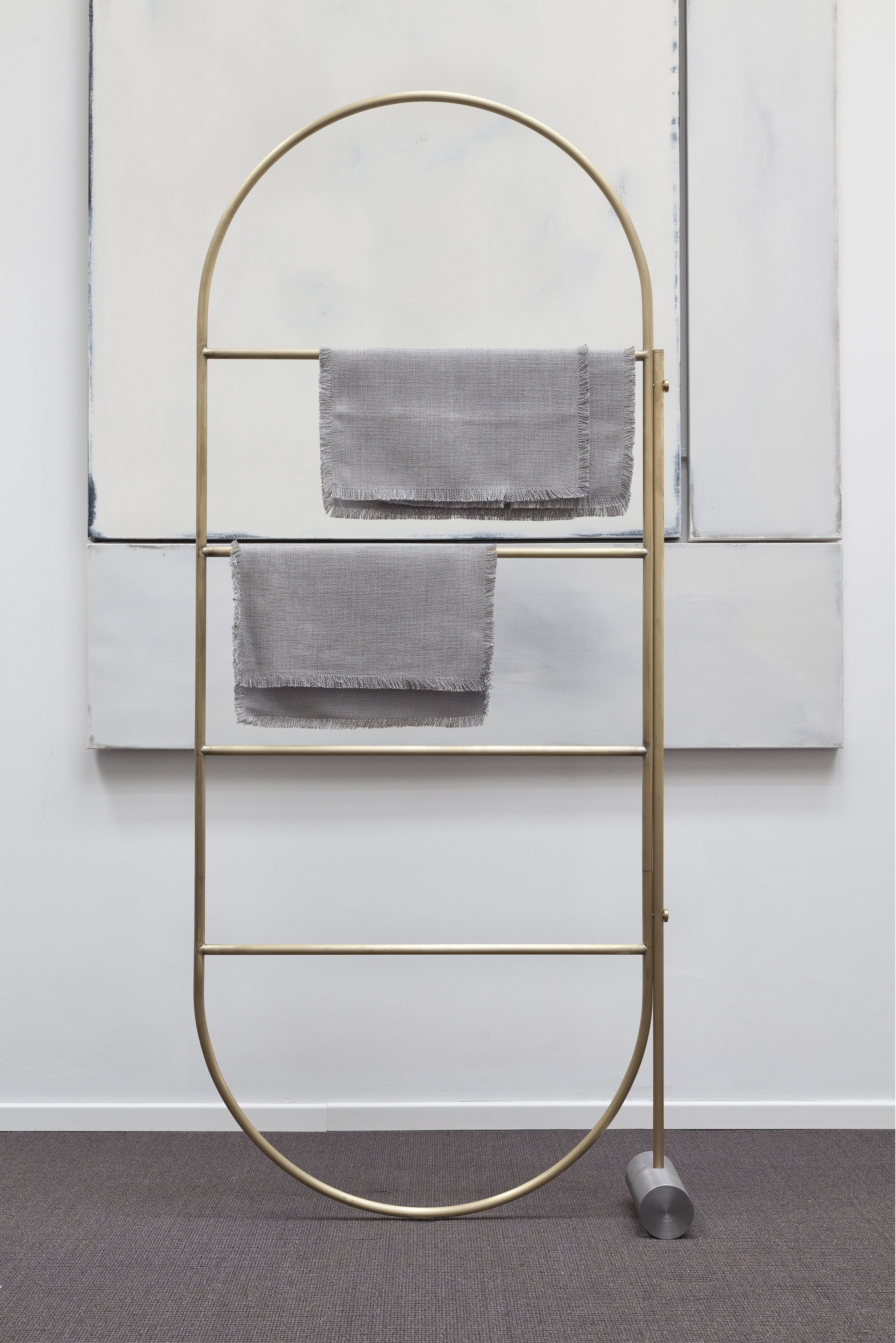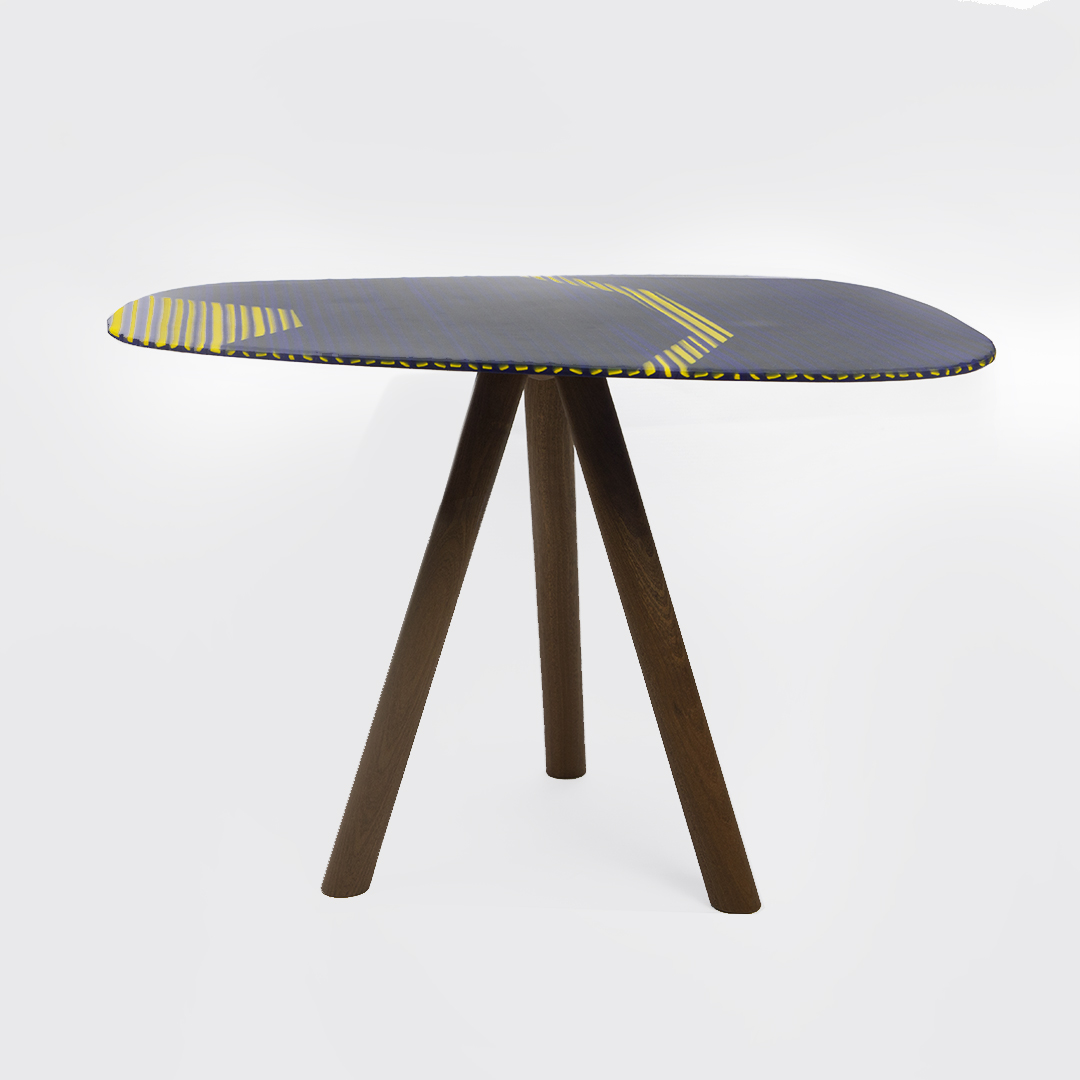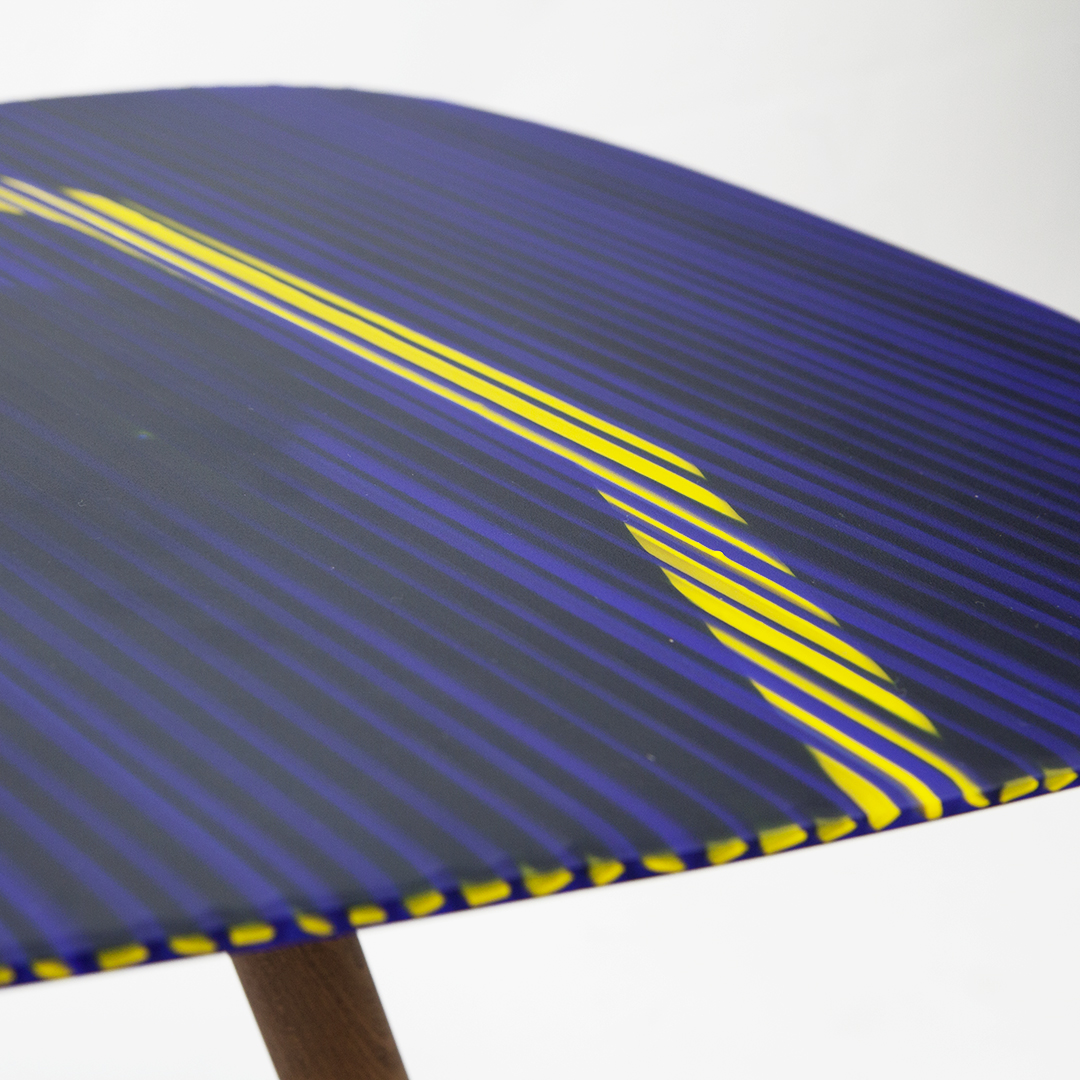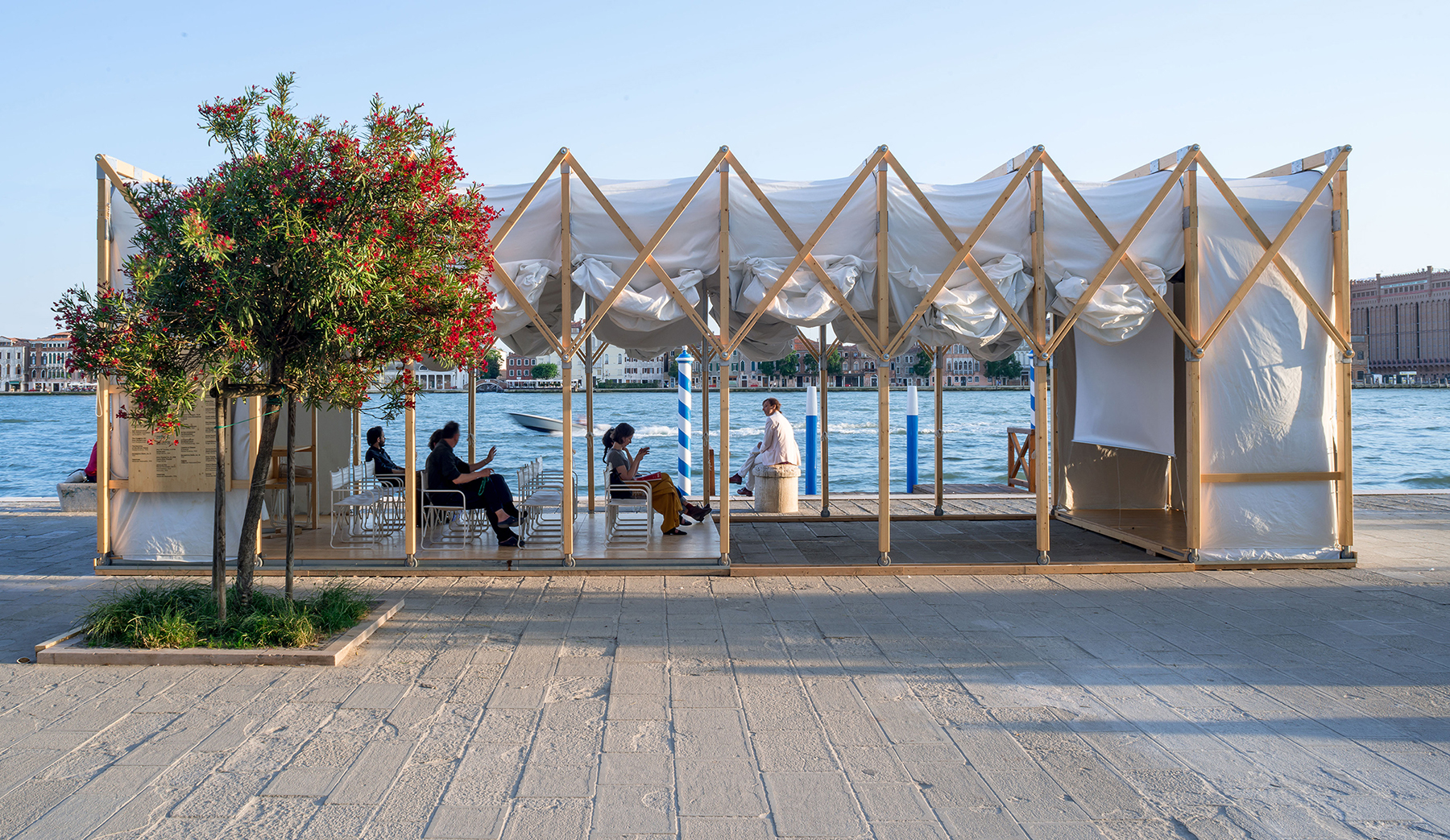
designed for V-A-C Zattere
Venetian designers are not necessarily Venetian by origin. Many are by choice. Maybe not even for a deliberate choice that crowns a long-standing desire. Sometimes it is the encounter with the city that, little by little, weaves the web that captivates you, holds you back, until the idea of living elsewhere becomes nonviable. A similar thing happened to Omri Revesz, an award-winning designer of Israeli origin. After a year long journey to India, the idea was to study industrial design in Italy - which usually means in Milan. But then with a friend they come to Venice, and they check the program of the IUAV, the Venice Institute of Architecture: they like the campus structure, as well as the habits of the city, and so they decide to enroll.
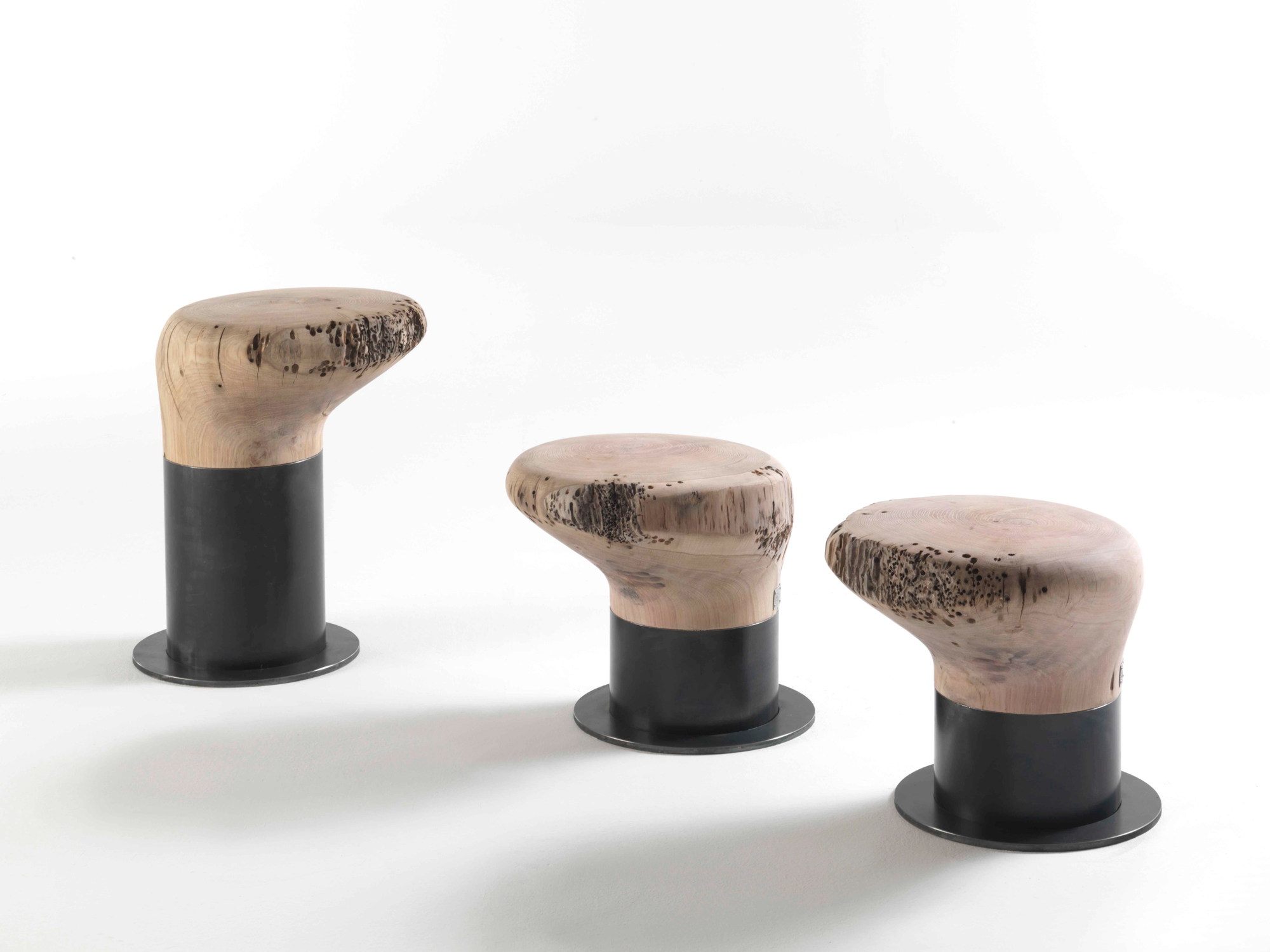
Bitta, urban stool, designed for Riva 1920
“Only later”, Omri says, “did I realize how lucky I had been, in those years, to follow the courses of exceptional professors such as Alberto Meda, Michele De Lucchi and Marco Zito”. After graduation, another experience in the Netherlands, but in the meantime, Venice has already cast his spell on him, and calls him back at the first opportunity. What Omri found in Venice is a kind of family resemblance to the Mediterranean culture to which he belongs. An intimacy in the relationships between people, and with the spaces that are lived in everyday life.
And it is no coincidence that, when asked what the distinctive dimension of his practice as a designer is, he answers by citing these relational aspects: “The starting point, for me, is always linked to behavior. The project begins with a sensitivity towards relationships, towards a latent, non-specific need, which can then be materialized in an object”.
The technology or the production process are integrated later in the ideational path. The goal is always to incorporate in the final product a wider space of freedom for those who will have to use it. Design to be future-proof. Perhaps this is why the two projects he is developing at the moment deeply embrace the notion of flexible use. One is a table, highly performing home office also suitable for a domestic use, and the other is the collaboration with a startup company for a sustainable prefabricated tiny houses, to be used as living unit, office, studio or hospitality, on or off grid. The idea, as Omri says, "is to eliminate the hassle of construction by off-site fabrication. Like this we can provide a factory housing quality while minimising delivery time and costs".
But the same spirit can be seen in several projects of the past, many of which developed thanks to collaborations with brands and cultural organizations based in Venice.
Isole, murano glass tables designed for Ercole Moretti
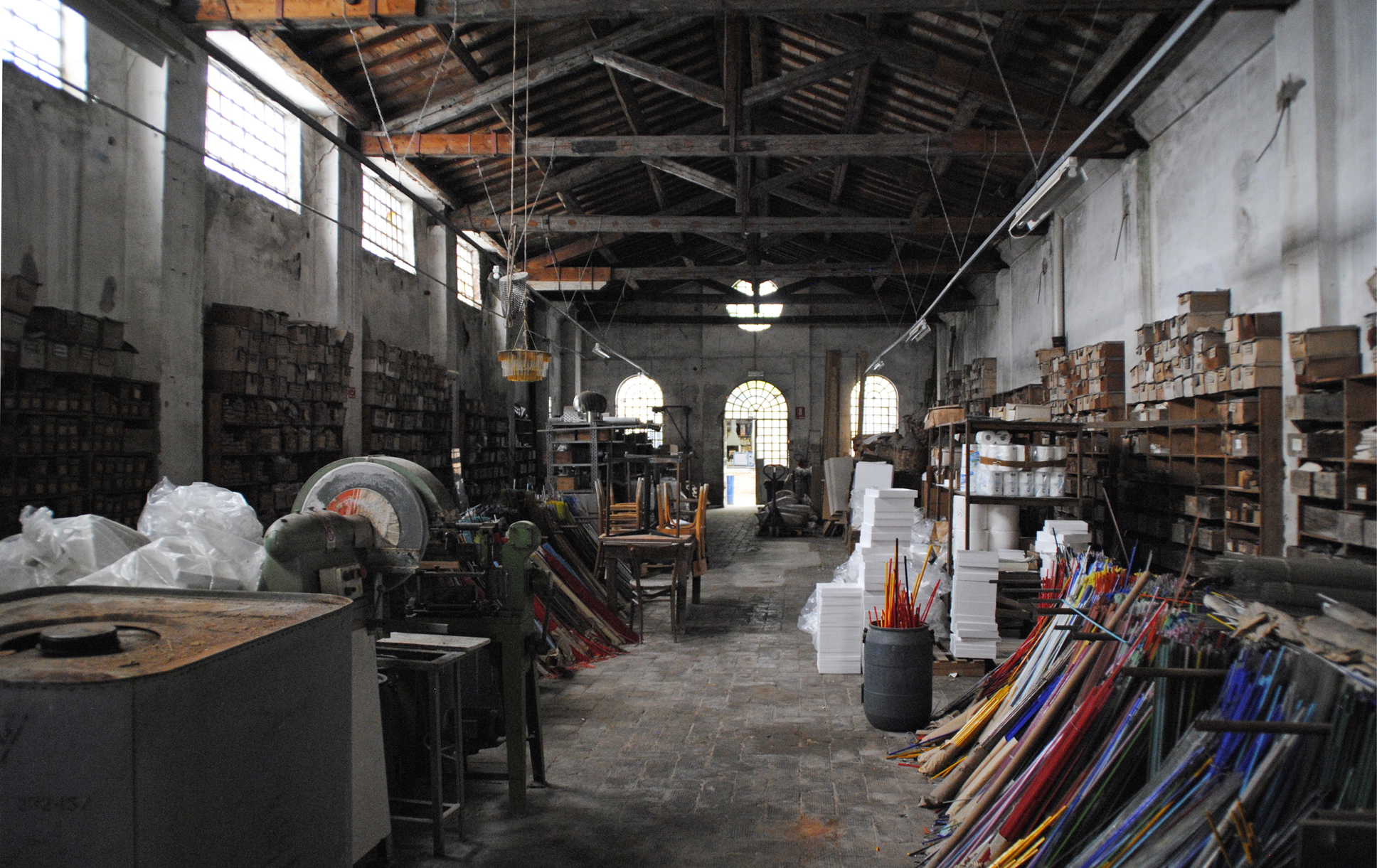
A view of Ercole Moretti factory in Murano
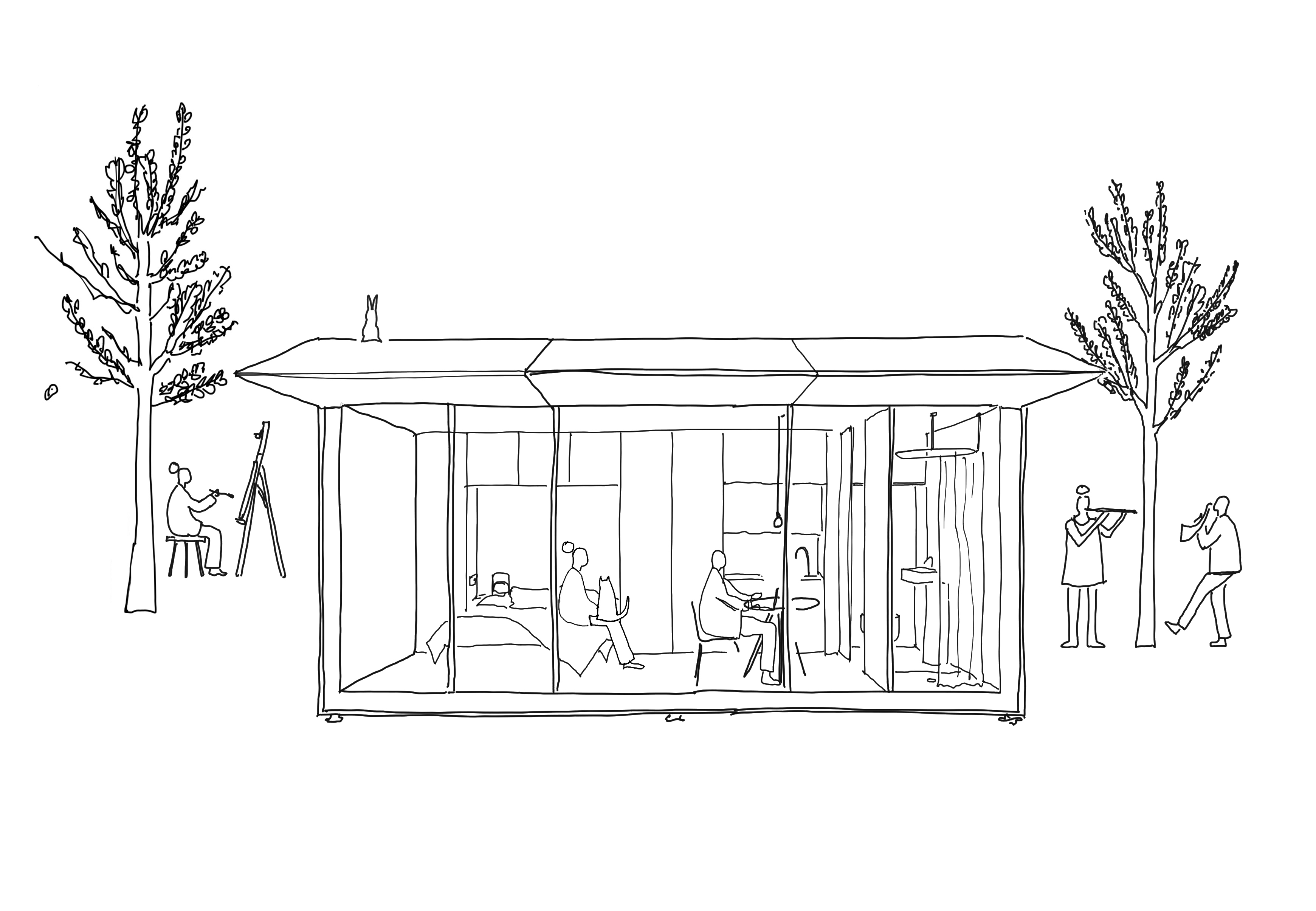
It is worth starting with the surprising Street Cinema mobile structure, designed for the V-A-C Foundation and positioned along the Fondamenta delle Zattere. Acting as a shady meeting point during the day and as a summer cinema in the evening, this modular and mobile structure, inspired by the constructivist aesthetic, has given a new meaning to the sharing of urban public space, enhancing its potential and different functions.
The project received an honorable mention at the Compasso d'Oro award, and the 2020 German Design Gold Award, Best Architecture. Perhaps due to his eccentric point of view with respect to the Venetian orthodoxy, he was able to approach the most typical materials and techniques of local crafts, without previous mythologies or anxieties for distinction. For his design pieces he used glass, wood, silk, enamels, mirrors, metal, collaborating with Salviati, Ercole Moretti, Lunardelli, Bevilacqua, Orsoni, Barbini, Mingardo and others. He has managed like few others to best express the depth of artisan knowledge, but without ever indulging in nostalgic attitudes.
"As a designer", he says, "I have an obligation to keep up with the rest of the world. I cannot shut myself up in an oasis of beauty and remain anchored in the past. And the same goes for artisans. They have unique skills, but they don't have to lag behind in terms of customer service, efficiency, technology. Design thinking is also expressed in these aspects. Fortunately, Venice, with the Biennale and its global intellectual context, is at the forefront of the world for contemporary culture. All the more reason we must work hard to be at the forefront also on other fronts ".
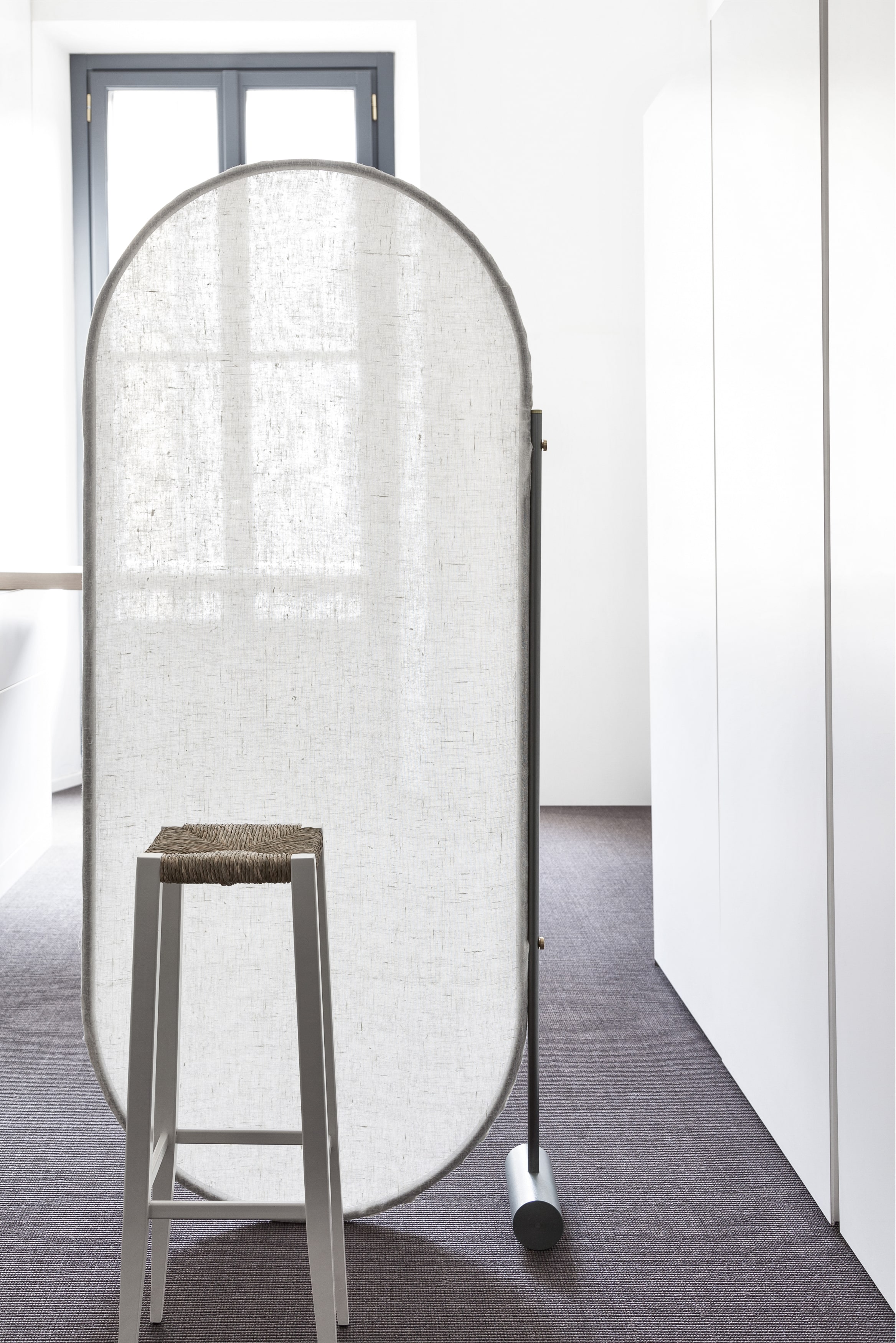
Separè, Space divider/rack designed for Mingardo srl
